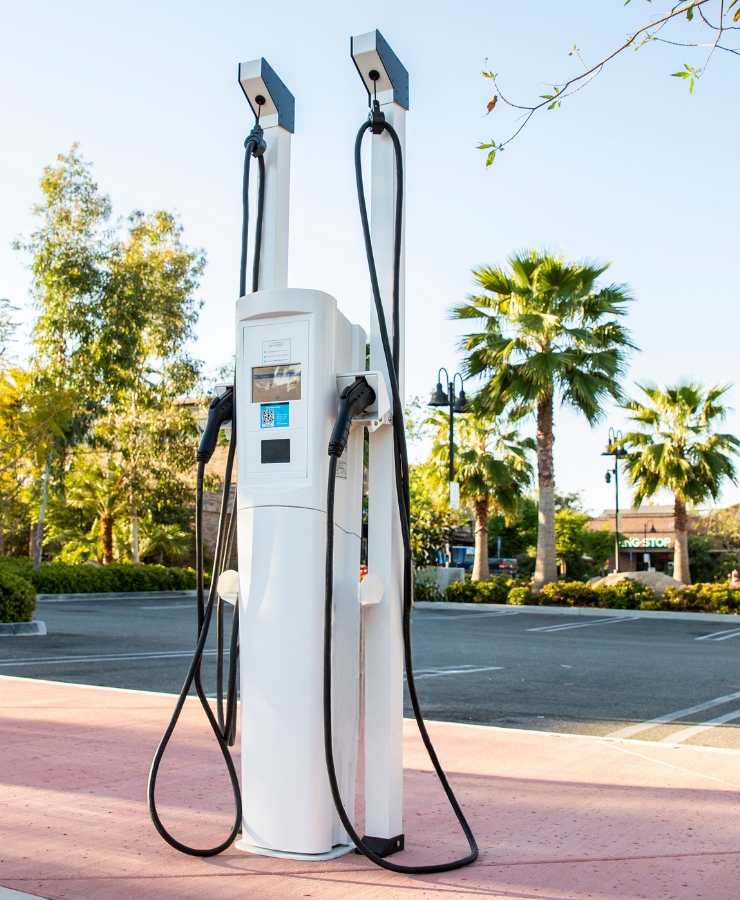
Consumers are not the only group investigating and buying electric vehicles (EVs). An increasing number of corporations and government entities are switching their fleets to EVs, such as school buses and emergency vehicles. This shift from fossil fuel to electric fleet vehicles requires a massive overhaul of supporting infrastructure. Most notably, this overhaul requires fleet EV-charging stations that can handle the power needs of frequently used or heavy-duty vehicles. However, certain barriers can slow the progress of government bodies compared to other groups, especially if they are involved in a bidding process.
An often lengthy and sometimes frustrating bid process for publicly funded projects can stretch across weeks or months, which can cause projects to falter and drag. Purchasing cooperatives, however, can quicken this process while also supplying a cost-effective and competitive bid process.
A purchasing cooperative cuts through excessive steps with a pre-approved list of vendors that are fully vetted and ready with negotiated pricing structures. Many organizations are unaware of these pricing cooperatives. Find out how to join, who is eligible, and the benefits of joining a purchasing cooperative for EV charging installations.
Read About the EV Chargers for the Fleet Industry
Understanding cooperative purchasing
At its core, cooperative purchasing is a procurement strategy that allows multiple organizations to pool their buying power. They can choose goods and services from a pre-approved list of vendors to save money, time, and resources. One example is the 791 Purchasing Cooperative.
The 791 Purchasing Cooperative is a national purchasing cooperative that serves all 50 states. It offers organizations goods and services ranging from janitorial supplies to curriculum and EV charging stations. The 791 Purchasing Cooperative contains a list of contractors that meet all state and federal competitive bidding requirements. This system slashes through the red tape, which can cause project delays. During each contract term, cooperative members can directly place orders with approved vendors to bypass the bidding process. bypass the bidding process.
A cooperative does not exclude competitiveness or cost-effectiveness from the bid process. This cooperative’s quality objective allows qualified members to purchase goods and services using an efficient, cost-effective, and competitive procurement method.

791coop.org
The 791 Purchasing Cooperative initiative is specifically designed to support institutions and the government such as:
- Educational institutions, such as local K-12 schools, colleges, universities, and educational service centers
- Government municipalities, including counties, cities, and special districts (such as libraries, airports, port authorities, and fire and police districts)
- State and federal agencies
- Non-profit organizations
Joining the 791 Purchasing Cooperative is straightforward: entities need to register as members to join. Once a member, organizations can immediately start leveraging the cooperative’s benefits.
Cooperative purchasing’s benefits and broad reach
The advantages of engaging in cooperative purchasing extend beyond simple cost savings.
Cooperative purchasing reduces the administrative burden on organizations by streamlining the procurement process. Instead of soliciting bids and negotiating contracts for each project, members can directly tap into pre-negotiated pricing, saving time, resources, and money.
Cooperative purchasing can also help organizations invest in EV charging installations that will last long-term by enabling them to purchase the newest technological innovations from EV charging station manufacturers. Imagine the difficulty of simultaneously having to sync two large projects, the purchase of an EV fleet and the fleet EV charging installation.
Moreover, cooperative purchasing programs like the 791 Purchasing Cooperative are not geographically limited. Although this cooperative is based in Texas, its members are located countrywide. These programs enable localized solutions for municipalities and school districts of any size while also leveraging purchasing power on a national scale. This broad reach helps members find solutions that are not only cost-effective but tailored to their specific needs, circumstances, and applications.
Finally, a cooperative supplies its members with information for making purchase decisions, greater market access, and increased transparency and accountability (particularly related to government agencies). This form of electronic procurement can act as a safeguard to help reduce potential corruption allegations in the various stages of public procurement.

Read the blog Major Fleets And Municipalities Move To Electric Vehicles.
Case study: Petaluma School District invests in EV infrastructure
By the end of 2023, less than one percent of school buses in the US were electric.1 However, according to the World Resources Institute, the number of operating and delivered electric school buses in the US increased from 598 in March 2022 to 1,285 in June 2023. During this same period, the number of electric school buses that were ordered or awarded funding nearly tripled.
The Petaluma School District’s foray into EV charging infrastructure is a great example of how cooperative purchasing can improve sustainability projects.
Facing a tight budget while also attempting to reduce emissions, the district leveraged the assets available through the 791 Purchasing Cooperative to find commercial EV charger manufacturers. The district contracted with BTC POWER, an approved EV charger manufacturer on the 791 Purchasing Cooperative’s list of goods and services providers.
This strategic move provided the district with cost-effective access to cutting-edge charging technology while also aligning the district with its broader sustainability goals.
Petaluma School District’s success is a powerful testament to cooperative purchasing’s ability to empower organizations to swiftly adopt green technologies. Because finding pre-approved providers can be particularly difficult with technology that frequently changes (such as with EV charging stations,) the cooperative proved invaluable to the school district.
The financial challenges of embarking on EV infrastructure projects can be significant but not insurmountable. Organizations can have powerful and meaningful results through procurement strategies such as cooperative purchasing and programs such as the 791 Purchasing Cooperative. These organizations can substantially save money, streamline their procurement processes, and unlock a wide-ranging selection of products and services.
The Petaluma School District’s experience highlights the benefits of cooperative purchasing and offers a compelling blueprint for organizations to follow. As more businesses and public entities continue to leverage these collaborative funds for fleet EV charging stations, the path toward a more sustainable, electrified fleet will be closer on the horizon.


